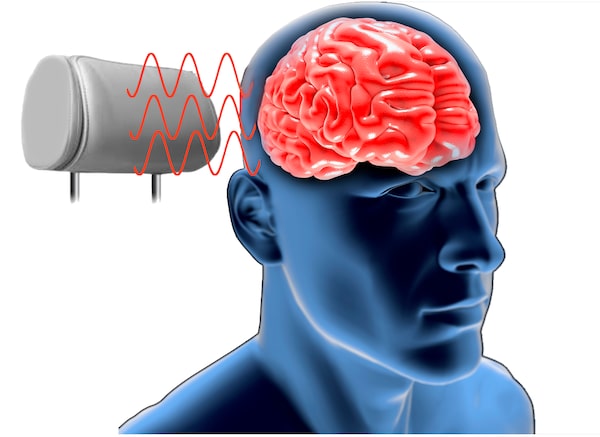Affectiva’s system uses a camera that can be mounted on the dashboard or rear-view mirror to monitor the driver’s face.Affectiva/Handout
One of the modern-day benefits of being in a car as a driver or passenger – besides getting from point A to B, of course – is that you’re relatively safe from the constant monitoring prevalent in modern urban environments. It’s a rare oasis where there’s no one recording you as part of an effort to hoover up any data you may be producing.
That’s set to change, however, as new in-car monitoring technologies become available. Not only that, but encroaching vehicle autonomy is likely to make them necessary.
“The sensor arrays we see on the exteriors of vehicles to detect the environment, the same concept is being applied to the inside now,” says Mark Boyadjis, global technology lead for automotive advisory services as analysis firm IHS Markit. “If you look at the landscape that we’re moving into with mobility, it’s really just an exchange for data.”
Freer Logic is working on headrests that can read brain waves and Affectiva is developing a system that can detect emotions through facial recognition. Freer Logic is working with automakers and tier-one parts companies to incorporate its neuro-monitoring technology, with a goal of adding it to vehicles in 2020. By reading brain data in real time, the company says its headrest can detect driver fatigue, distraction and cognitive load at up to 25 cm away. If the system detects the driver’s mental activity is slowing down, it can vibrate the seat or steering wheel and suggest taking a break.

By reading brain data in real time, Freer Logic says its headrest can detect driver fatigue, distraction and cognitive load at up to 25 cm away.Handout
“It’s listening, like a giant microphone, to what your brain is telling you,” says company president Peter Freer. “Getting this brain data is critical to where the future is in transportation.”
Affectiva’s system uses a camera that can be mounted on the dashboard or rear-view mirror to monitor the driver’s face. The company, which is also working with auto and parts makers and targeting a 2020 rollout, says its system can similarly detect fatigue and distraction from facial cues, such as a furrowed brow or drooping eyelids.
As with Freer Logic’s neuro-monitoring, Affectiva believes its technology will be more important as cars increasingly become autonomous. Some vehicles already have level two autonomy and can handle their own steering and speed, while level three systems – where the car handles most aspects of driving – are imminent.
In both cases, however, drivers must keep their attention on the road and be ready to take over at a moment’s notice.
“There’s going to be a lot of hand off between the car and the driver so you really need to trust the car and vice versa,” says Nick Bonfatti, sales engineer for Affectiva.
Trust might not be the main issue, however – liability very well may be. Boyadjis says auto makers and service providers who will use semi-autonomous vehicles are going to need to monitor car occupants to cover themselves in the event of accidents.
Neuro- or facial monitoring records might provide them with the data they’ll need to argue against taking responsibility.
Affectiva believes its technology will be more important as cars increasingly become autonomous.Affectiva/Handout
“Any auto maker who puts the technology in the marketplace for level three automated driving will be taking a product liability risk if their driver decides not to drive it,” he says. “It’s not just a gimmicky or niche thing … That’s another reason to push it.”
That need could set up a clash between manufacturers and occupants, who don’t necessarily want to be monitored inside cars. A recent IHS Markit survey showed that about 20 per cent of respondents aren’t interested in such features, with 30 per cent of those citing privacy concerns as the main reason.
“I’m not sure if I read that as no one is concerned about privacy, or people don’t understand the potential privacy implications,” Boyadjis says. “Maybe only 30 per cent of the people did.”
Both Freer Logic and Affectiva say their respective systems don’t need to record or be connected to a cloud, so they don’t necessarily have to store occupant data. But the companies acknowledge that privacy concerns will inevitably have to be addressed when it comes to incorporating such technologies into vehicles.
“Those questions really have to be answered,” Freer says. “I’d advise you use it ethically and perhaps you have to have some regulations in place.”
Shopping for a new car? Check out the new Globe Drive Build and Price Tool to see the latest discounts, rebates and rates on new cars, trucks and SUVs. Click here to get your price.
Stay on top of all our Drive stories. We have a Drive newsletter covering car reviews, innovative new cars and the ups and downs of everyday driving. Sign up for the weekly Drive newsletter, delivered to your inbox for free. Follow us on Instagram, @globedrive.